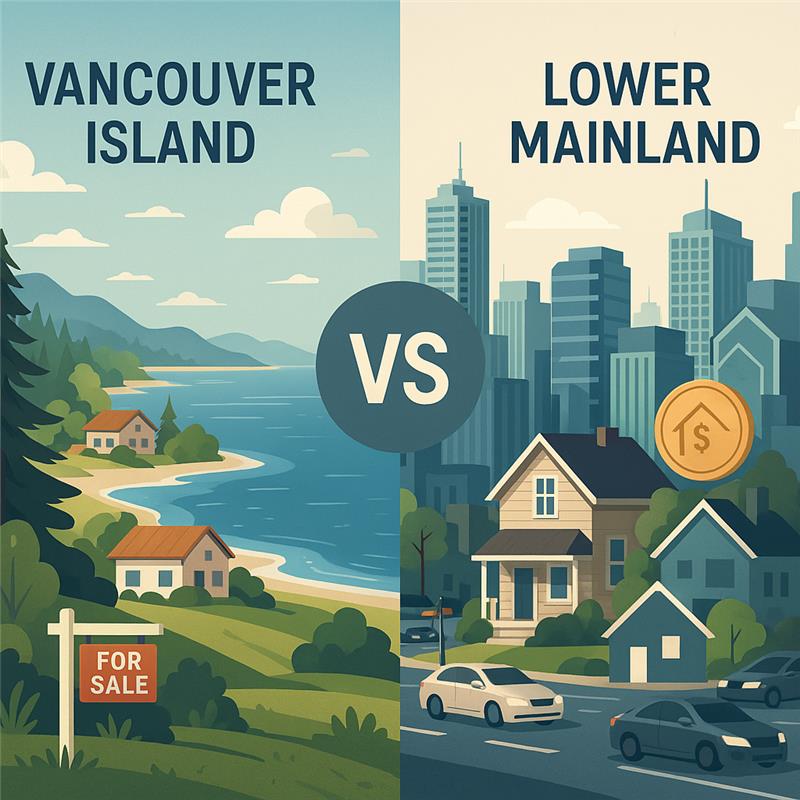NANAIMO, B.C. — Despite the current fall of housing prices in British Columbia’s Lower Mainland from their excessive heights, a growing number of homebuyers and investors are turning their attention to Vancouver Island real estate. With its comparatively lower property prices, relaxed lifestyle, and strong community ties, the island is quickly becoming a compelling alternative for those seeking both affordability and quality of life.

Affordability Driving Demand
Real estate on Vancouver Island is typically 15 to 20 percent less expensive than comparable properties in the Lower Mainland. This price gap is attracting first-time buyers and investors alike, many of whom are priced out of the Metro Vancouver market.
“Affordability is a major factor,” says a local real estate analyst. “Buyers are realizing they can get more space, more land, and a better lifestyle for significantly less money.”
The availability of land for custom home builds is another draw, offering opportunities for unique and potentially lucrative development projects.
Lifestyle a Major Selling Point
Beyond the numbers, lifestyle is playing a key role in the island’s appeal. Vancouver Island offers a slower pace of life, abundant natural beauty, and a strong sense of community—qualities that are increasingly valued in the post-pandemic world.
Outdoor enthusiasts are particularly drawn to the island’s hiking trails, beaches, and wildlife. In contrast to the Lower Mainland’s urban hustle, the island offers a more tranquil, nature-connected way of living.
Market Dynamics and Investment Potential
While, the Lower Mainland is seen as a stable and high-demand market, (currently experiencing a downturn in home values and market stagnation), Vancouver Island is showing strong appreciation trends, especially in the rental sector. However, despite its limited size and availability, which some see as volatile, many savvy investors increasingly view this as an opportunity.
“Volatility can be a double-edged sword,” notes a Victoria-based realtor. “But for those who understand the market, it can also mean higher returns.”
Key Considerations for Buyers
Despite its advantages, Vancouver Island does come with trade-offs. The job market is smaller and more reliant on tourism and services, while infrastructure and accessibility—including ferry and air travel—are less robust than in the Lower Mainland. This is quickly becoming an outdated rebuttal with the introduction of Hullo ferry’s fast 70-minute shuttle service from downtown Nanaimo to the Pan Pacific Hotel, Vancouver. Moreover, with two float plane companies and the increasing ability to work remotely it’s no wonder that any drawbacks are far outweighed by the benefits of island life
Bottom Line
As British Columbia’s real estate landscape evolves, Vancouver Island is carving out more than just a niche, but an increasingly popular and desirable destination for those seeking affordability, lifestyle, and long-term investment potential. While it may not offer the same economic scale as the Lower Mainland, it provides a compelling alternative for a growing segment of the market.
